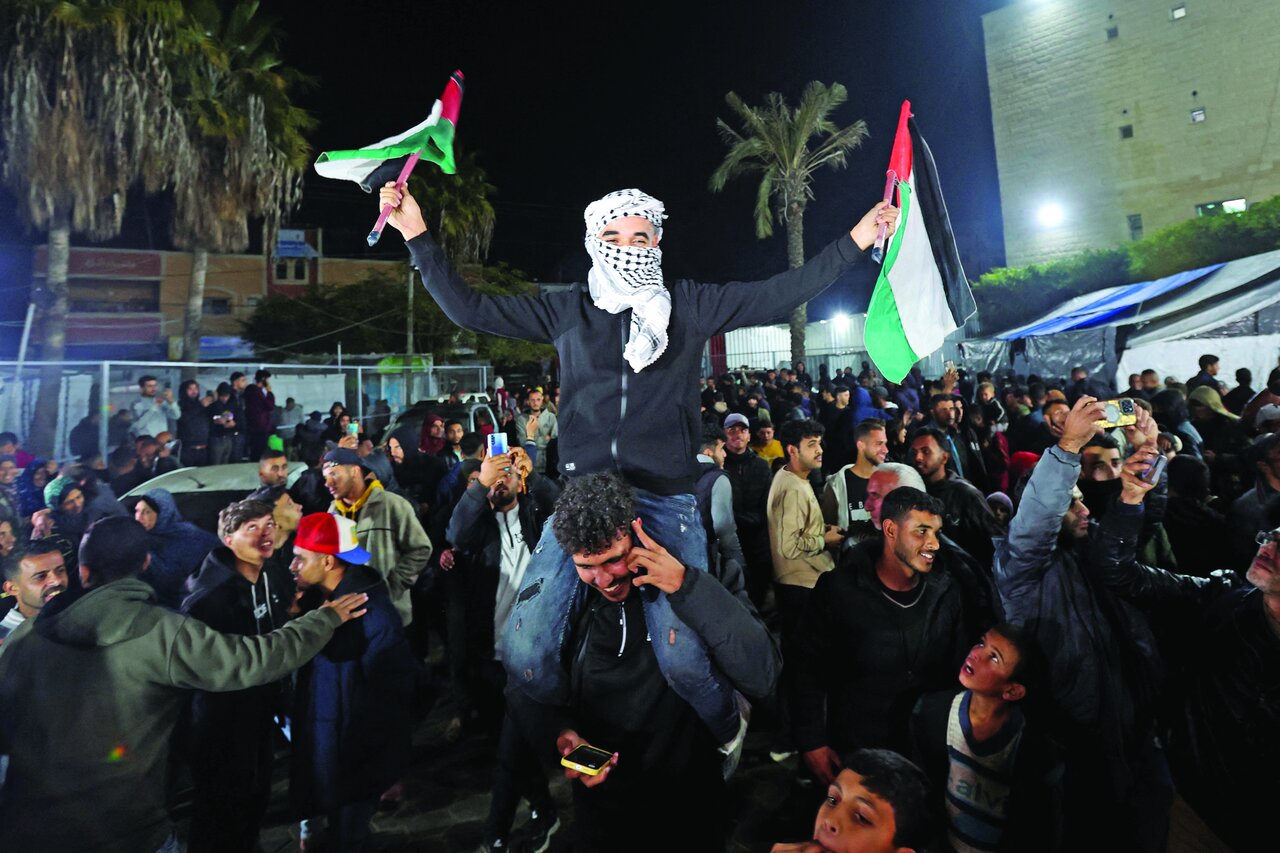Resistance triumphs, exposing Western double standards

SOUTH LEBANON - After more than 15 continuous months of barbaric US-led Israeli aggression, the Palestinian resistance – i.e. the Axis of Resistance – has triumphed.
The 467 days of legendary steadfastness have reinforced the firm conviction that the resistance option is capable of imposing conditions on the temporary entity and its supporters, and not the so-called “international community” that is already involved in the systematic genocide and destruction.
In the temporary transitional phase, Western experts warn of the “danger” of leaving a security vacuum in Gaza, which may once again strengthen “Hamas’ influence,” and negatively affect the chances for “peace” in the region.
During the Al-Aqsa Flood Operation, Lebanon, Yemen, Iraq, Iran, and Syria (under its former ruler Bashar al-Assad) played decisive roles in supporting the Palestinian resistance, on the military, financial, political, and media levels.
For its part, Hezbollah established itself as a decisive front in the conflict, exhausting the enemy for about a whole year; observers expect that the next phase will witness continuous pressure to enforce the implementation of UN resolutions 1559, which stipulates the need to dismantle and disarm Hezbollah, while resolution 1701 stipulates the expulsion of Hezbollah from south of the Litani.
Thus, it is likely that international intelligence coordination will be strengthened to monitor and cut off Hezbollah’s supplies, in parallel with pressure on the Lebanese government.
Despite Western claims about arming the Lebanese army, the tangible reality reflects its deprivation of any qualitative weapons that enable it to form a deterrence in the face of threats by imperialist expansionists.
It is known that Hezbollah has long provided the Palestinian resistance movement with Iranian weapons along with accurate intelligence information about the Israeli occupation army, which has been highly useful in launching defensive and offensive operations.
Despite all the challenges it faces from Israel, Britain, and the United States, the Ansar Allah movement has also played an influential role through the naval blockade in the Red Sea. In parallel, its leader’s occasional speeches, Sayyed Abdul-Malik al-Houthi, have provided fundamental political support to the entire Axis of Resistance.
In the context of the increasing security challenges, the US and Western policies continue to destabilize – through sanctions and military interventions – Syria, which will highly likely contribute to the emergence of terrorist cells, and thus deepen political and social divisions.
With regard to the temporary colonial entity, the military and political support that Tel Aviv receives from Washington and other Western allies has strengthened its destructive role in West Asia.
This exposes the double standards of the arrogant West, falsely accusing Tehran of threatening West Asia’s security. It continues, in parallel, to tighten its hostile economic, political and even military pressure against the Iranian people, as a decisive means of pressure if its “diplomatic” tricks fail.
Repeatedly, the pro-Israel West openly declares the need to support the anti-Iran terrorist groups in a bid to wreak havoc in Iran, only because it supports resistance movements and poses an existential threat to its hegemonic ambitions.
Tehran, undoubtedly, has been a strategic backbone; its vivid role has been evident through financial, military and diplomatic support for all resistance factions.
Operations “True Promise 1 & 2” have constituted direct military friction between Iran and the Israeli entity. Iran has contributed, along with its allies, to exhausting the US proxy, i.e. Israel.
Iran’s committed policy has united Arab, Islamic and international support for the Palestinian cause, which undermined the US influence, thus posing major challenges to Washington’s foreign policy in the region.
